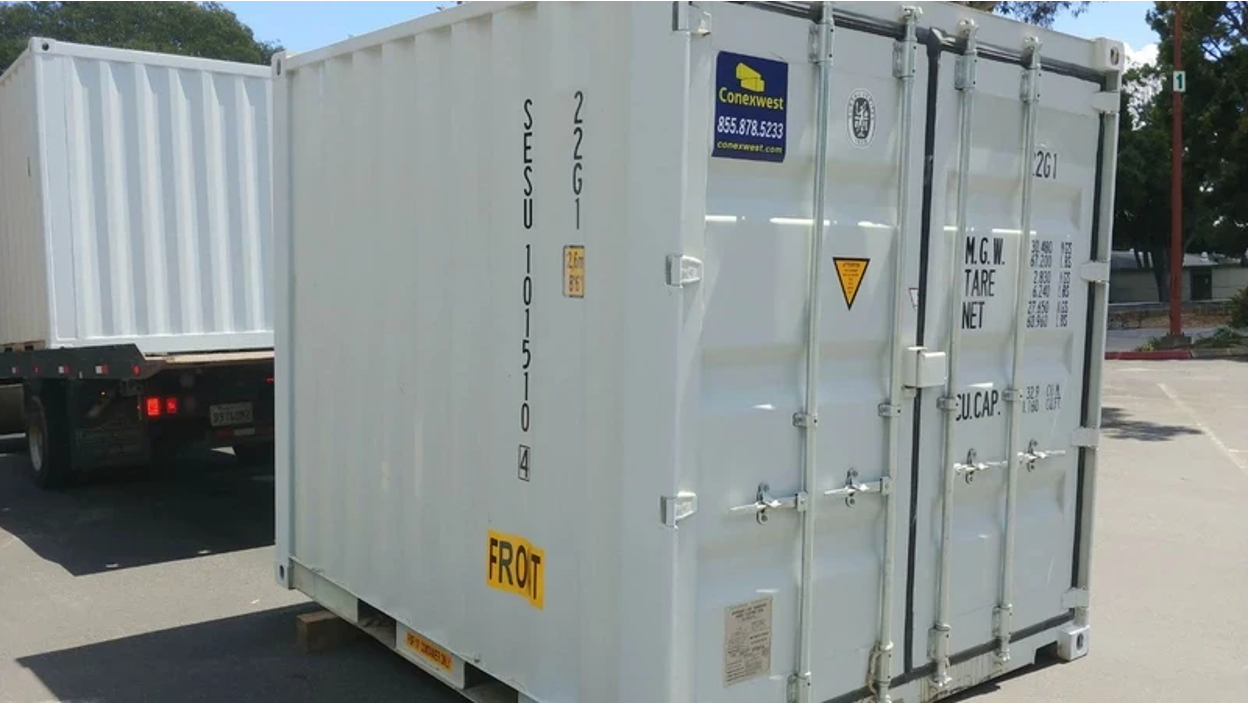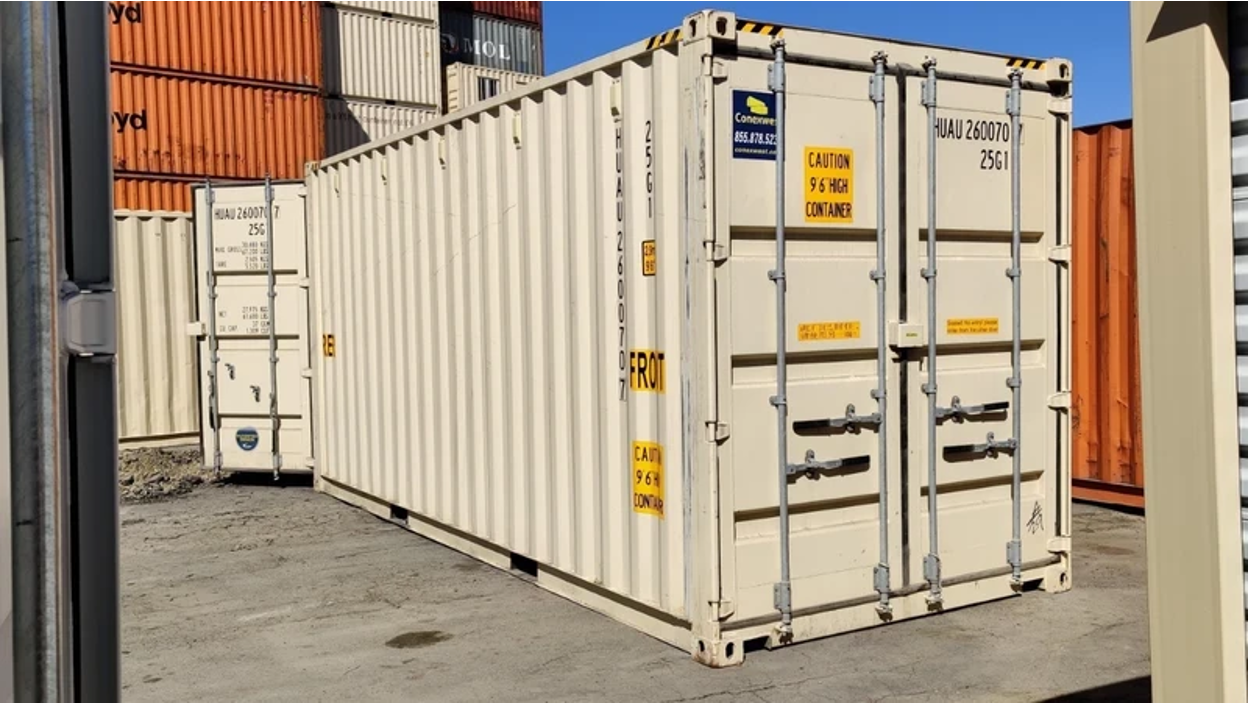Missouri Shipping Container Zoning Laws, Permits & Building Code Requirements
Get a quoteMissouri Shipping Container Zoning Law, Permit & Building Code Guide
Key Takeaways
- Zoning laws categorize land as residential, commercial, or industrial for appropriate use of shipping containers.
- Permits are required for both temporary and permanent container structures.
- Engage with local authorities early to avoid delays and potential fines.
- Conexwest is available to provider expert guidance to help you comply with Missouri’s container regulations.
Shipping Container Zoning Laws, Permits, & Building Code Requirements In Missouri
General Zoning Laws
- Zoning Designations:
- Residential Zones: Generally, shipping containers are restricted or can be placed only temporarily in residential areas of Missouri.
- Commercial Zones: Shipping containers can often be used for storage or as part of a business operation, provided they comply with local zoning codes.
- Setback Requirements: Many municipalities require that shipping containers be set back a certain distance from property lines and existing structures. This is to prevent interference with neighboring properties and to maintain aesthetic standards.
- Use Restrictions: Containers must not block fire lanes or access routes. They are often prohibited from being stacked or placed on vacant lots without an active business operation.
Permits Required
- Building Permits: Most municipalities require a building permit for the placement of shipping containers, especially if the container will be used as a permanent structure or modified for living purposes.
- Temporary Use Permits: If a container is used temporarily (e.g., at a construction site), a temporary use permit may suffice.
- Application Process: The application involves submitting plans detailing the intended use of the container, its dimensions, and its location on the property. Fees may apply depending on the municipality’s regulations.
Building Code Requirements
- Structural Integrity: Shipping containers must meet certain structural standards for safety and durability. Thus, they should be weather-resistant and capable of withstanding local environmental conditions (e.g., wind loads and snow loads).
- Utilities: If containers are modified for habitation, additional permits are required for utilities, such as plumbing and electrical systems, for compliance with local health and safety codes.
- Aesthetic Regulations: Some municipalities impose aesthetic guidelines that dictate how shipping containers should appear when placed on properties. This includes requirements for painting or landscaping around the containers to minimize visual impact.
Here are examples of regulations of some municipalities in Missouri:
- California: Shipping containers are prohibited on residential properties except temporarily during construction (30 calendar days; 2 times a year). Plus, they cannot be stacked or placed on vacant lots.
- Kansas City: Temporary portable storage containers are permitted for a period not to exceed a total of 30 days within any consecutive 6-month period.
Conexwest, a leader in shipping and storage solutions based in Northern California, offers new, used, and refurbished containers from 10ft to 45ft, with fast delivery within 3-7 days and container fabrication options like adding shelves and locks. We serve over 10,000 customers nationwide, including prestigious clients like the U.S. Navy and Google. As an ISO 9001 and AWS-certified company, we ensure top quality and competitive pricing. |
Tips For Complying With Missouri’s Regulations

Consult with our experts to comply with Missouri’s shipping container regulations easily
- Consult Local Zoning Offices: Before acquiring a shipping container, visit your local zoning office to understand the exact regulations and restrictions in your area.
- Apply for Building Permits Early: If your project requires a building permit, submit your application as early as possible. The approval process can take time, and starting early can prevent delays in your project.
- Plan for Installation: Check that you have a solid foundation ready for the container. This could be a concrete slab or gravel pad, which is often required by local building codes for stability.
- Address Utility Needs: If you intend to use the container as a living space or office, you should also plan for necessary utility connections such as electricity, water, and sewage. Consult with professionals for compliance with local codes regarding utility installations.
- Consider Aesthetic and Safety Requirements: Some municipalities may require containers to be painted or otherwise modified to fit in with the local aesthetic. Check if there are any design guidelines you must follow.
- Check HOA Rules: If you live in an area governed by an HOA, review their rules regarding shipping containers. Some HOAs may have strict guidelines that could affect your ability to place a container on your property.
- Implement Security Measures: Shipping containers can be a target for theft or vandalism. So, consider installing locks, security cameras, or fencing around the container to protect its contents.
- Keep Records of Permits and Approvals: Maintain organized records of all permits, applications, and correspondence with local authorities. This documentation may be necessary for future inspections or disputes.
Choose Conexwest For Your Shipping Container Needs

Purchase, rental, customization, repair, and delivery - Conexwest takes care of all shipping container needs
Conexwest is a leading provider of shipping and storage solutions all over the US. Since our inception, we have specialized in providing a comprehensive range of new, used, and refurbished shipping containers, available in sizes from 10ft to 45ft.
We have already served over 10,000 customers nationwide, including notable clients like the U.S. Navy and Google. Thus, you can trust our services.
Why Choose Conexwest for Your Shipping Container Needs
- Customization Options: Our containers can be customized with features such as windows, HVAC systems, and specialized doors to fit your project requirements perfectly.
- Quality Assurance: Our containers are made from high-quality corten steel and undergo rigorous inspections to provide you with reliable products that last.
- Expert Guidance: We can assist you in understanding and complying with Missouri’s regulations regarding shipping containers to help you complete the permitting process smoothly.
- Transparency: We provide transparent pricing without hidden fees so you can budget effectively for your container needs.
- Exceptional Customer Support: Our dedicated customer service team is always available to answer your questions and provide assistance throughout your project.
Frequently Asked Questions (FAQs)
- What are the initial steps to take for compliance?
To ensure compliance with Missouri's regulations, the first step is to contact your local zoning office. They will provide the latest information on what is permissible in your area.
Next, gather all necessary permits, which may include a building permit if your container will be a permanent structure. Finally, check if your container meets local building codes to avoid any legal complications.
- What should I consider before purchasing a shipping container?
Before purchasing, consider:
- The regulations in your area regarding shipping containers.
- The condition of the container to meet the safety standards.
- How the container will impact your property’s aesthetics and compliance with community standards.
- How do zoning laws differ across Missouri?
Zoning laws can vary significantly across Missouri, as they are determined by local municipalities. For example, urban areas may have stricter regulations on where containers can be placed, while rural areas might provide more flexibility.
In some cases, zoning laws may restrict the use of containers as dwellings but allow them as storage units. Thus, it’s important to have a clear understanding of the zoning classification of your property before proceeding with your project.
- What are the penalties for not following regulations?
Failing to comply with local zoning laws and building codes can result in fines, orders to remove the container, or legal action from local authorities. So, get all necessary permits before placing a shipping container on your property.
- How does Conexwest maintain the quality of its containers?
We use high-grade corten steel for all our containers, which provides durability and weather resistance. Each container undergoes rigorous inspection and maintenance processes before delivery. Additionally, we provide warranties - 10 years for new containers and 5 years for used cargo-worthy containers - to give you peace of mind regarding your investment.
